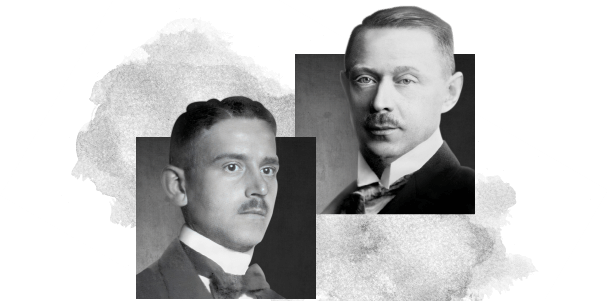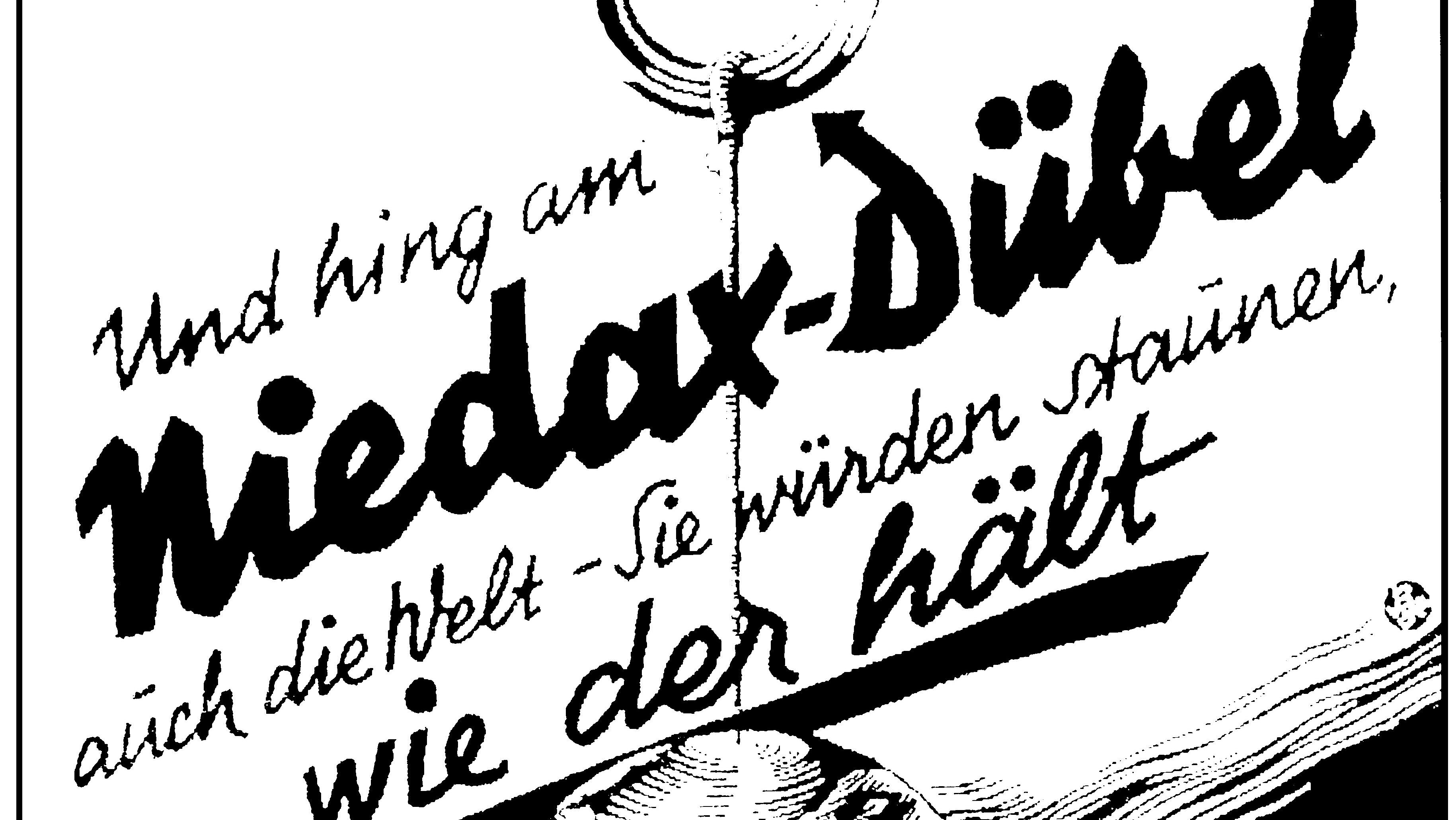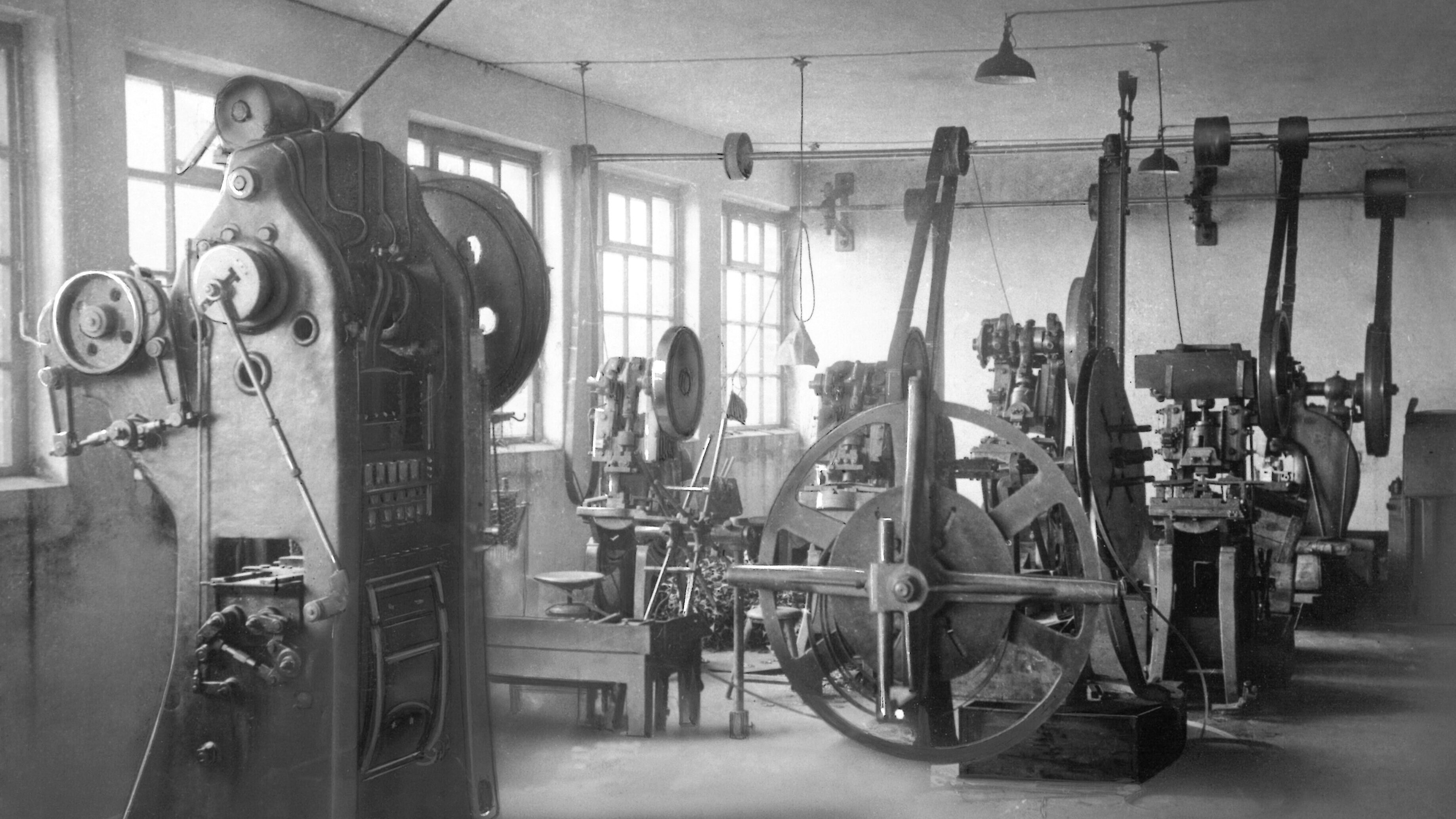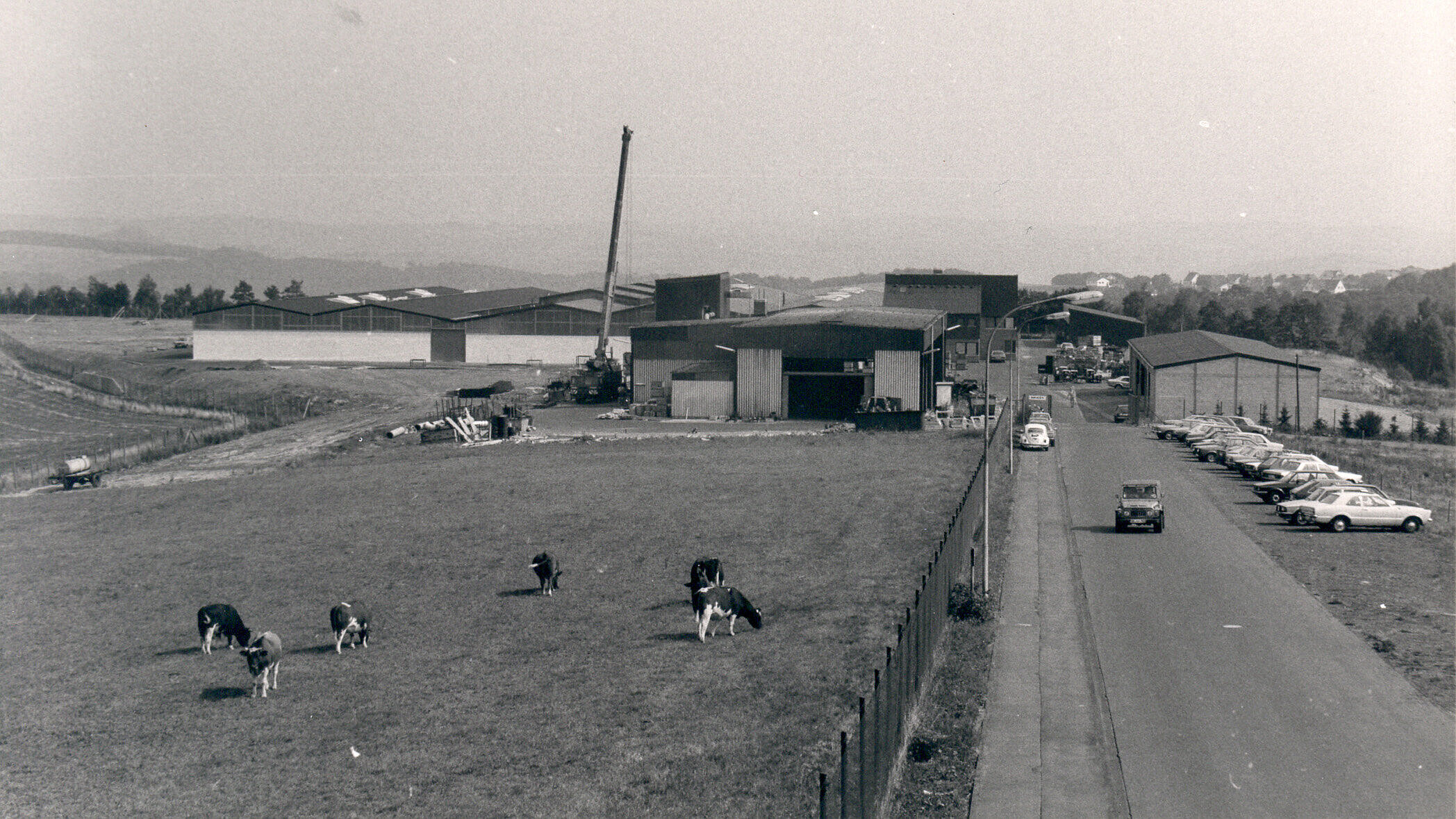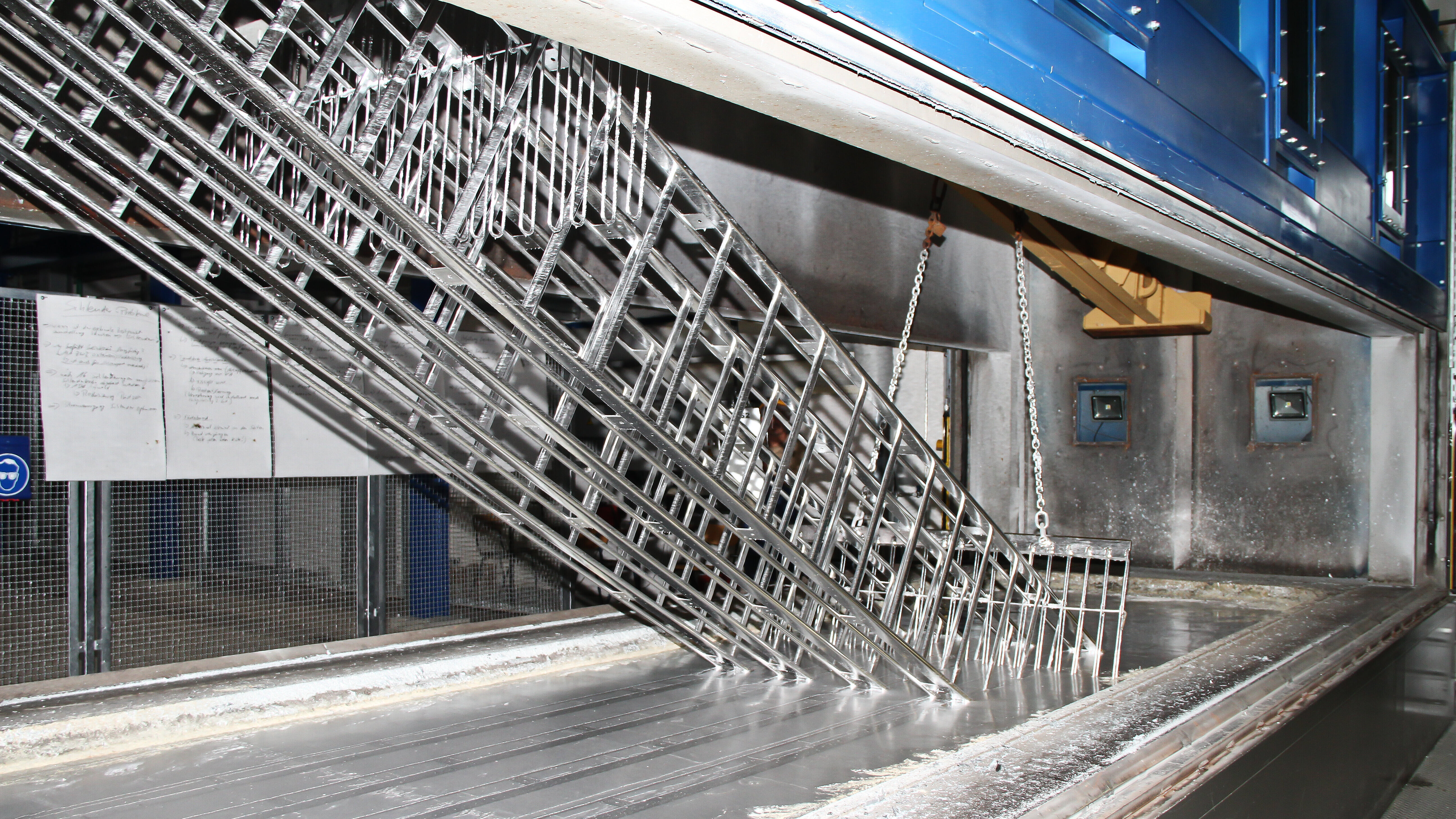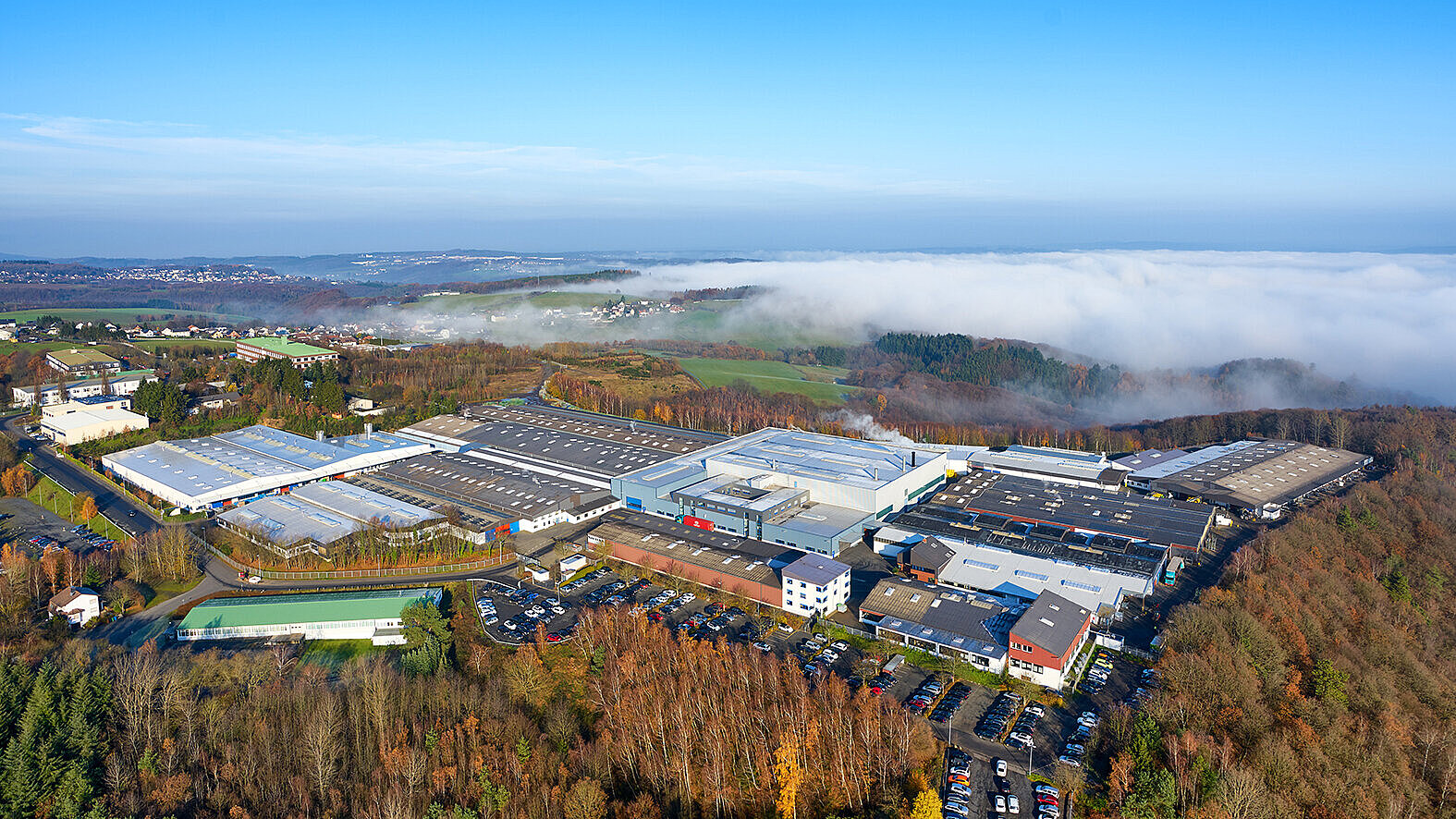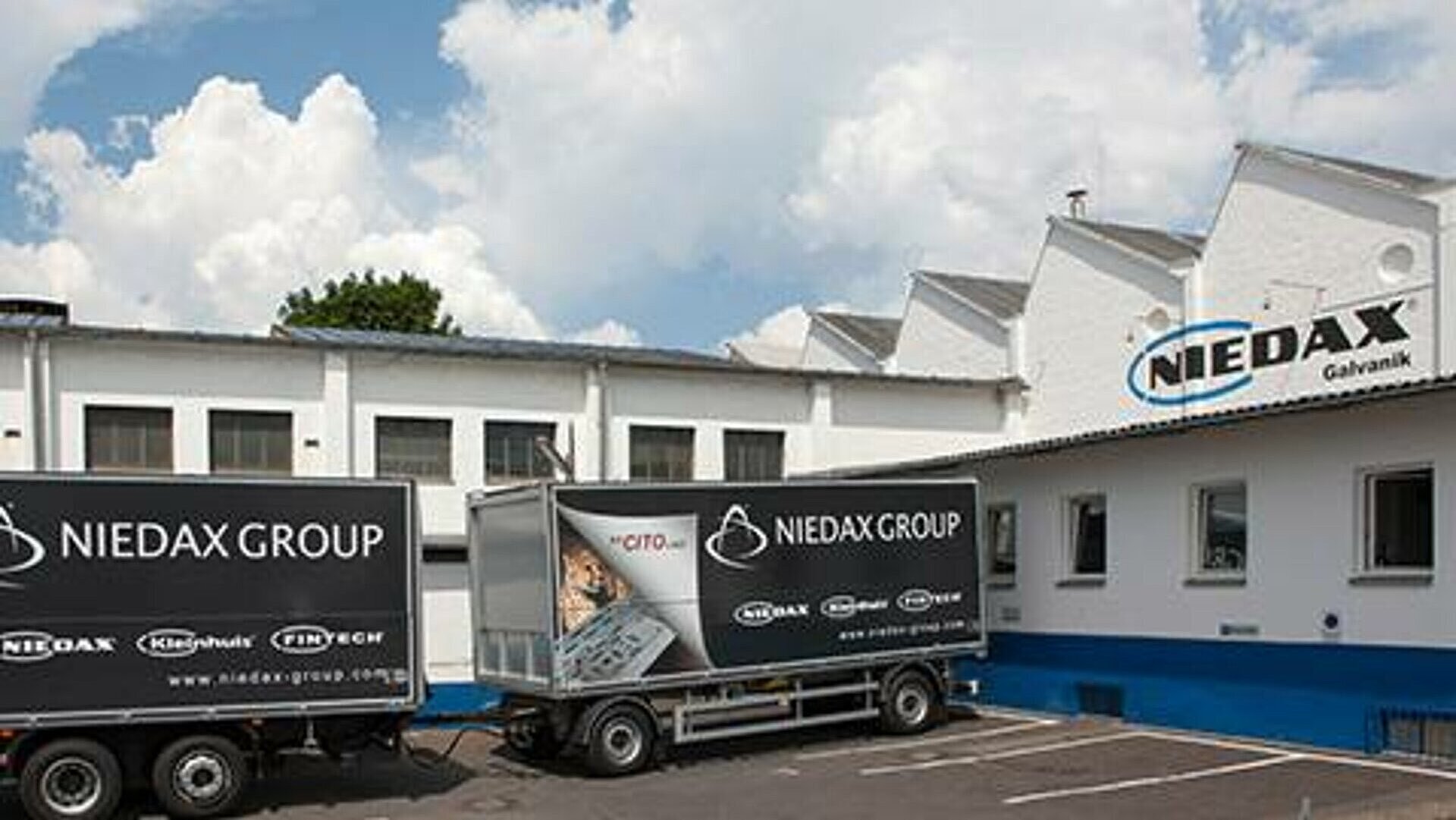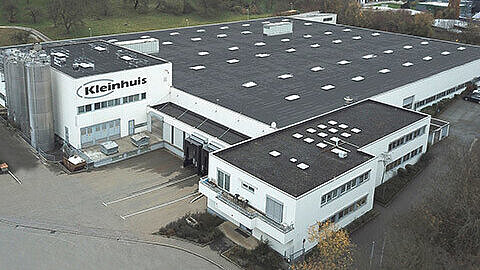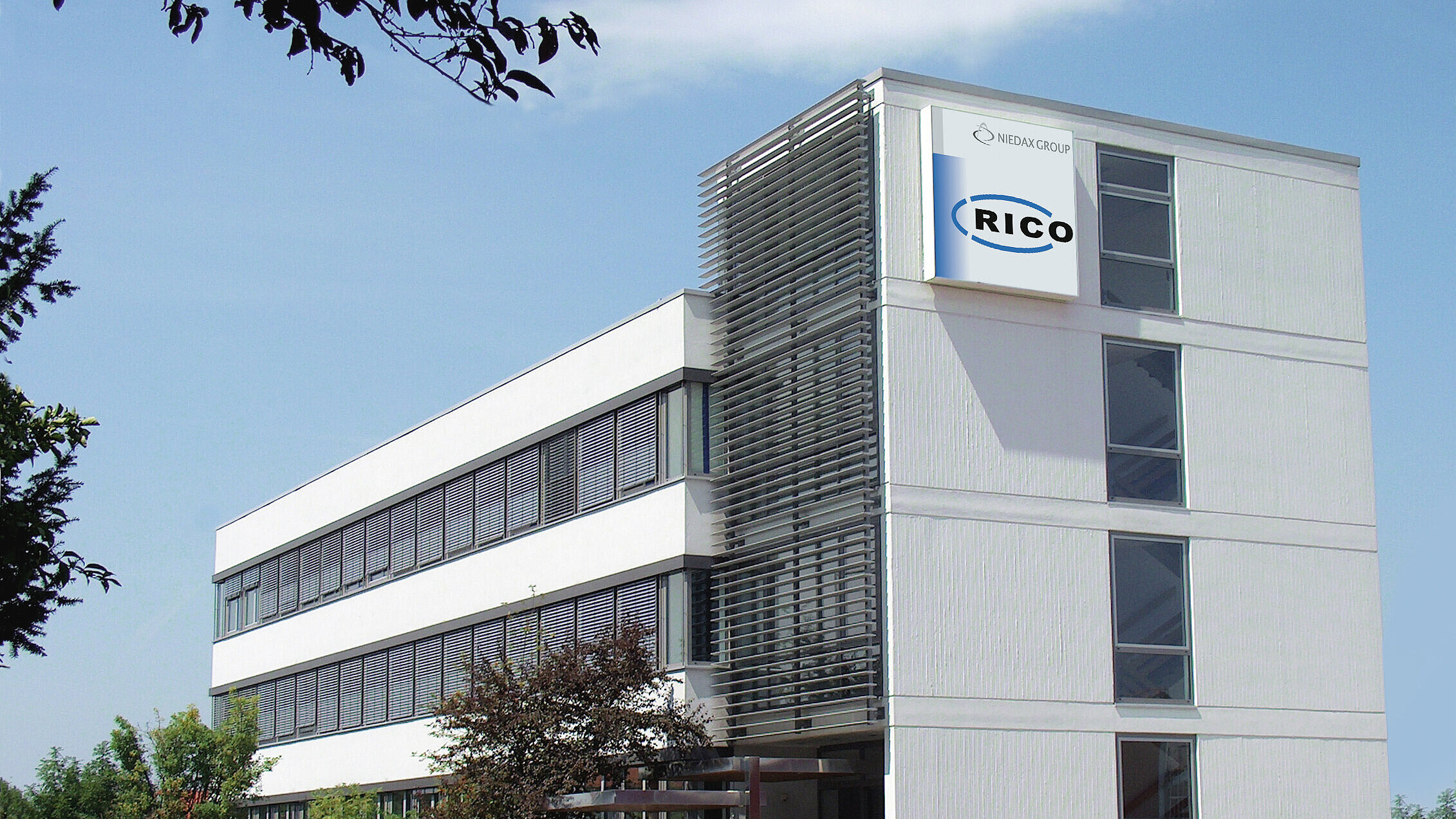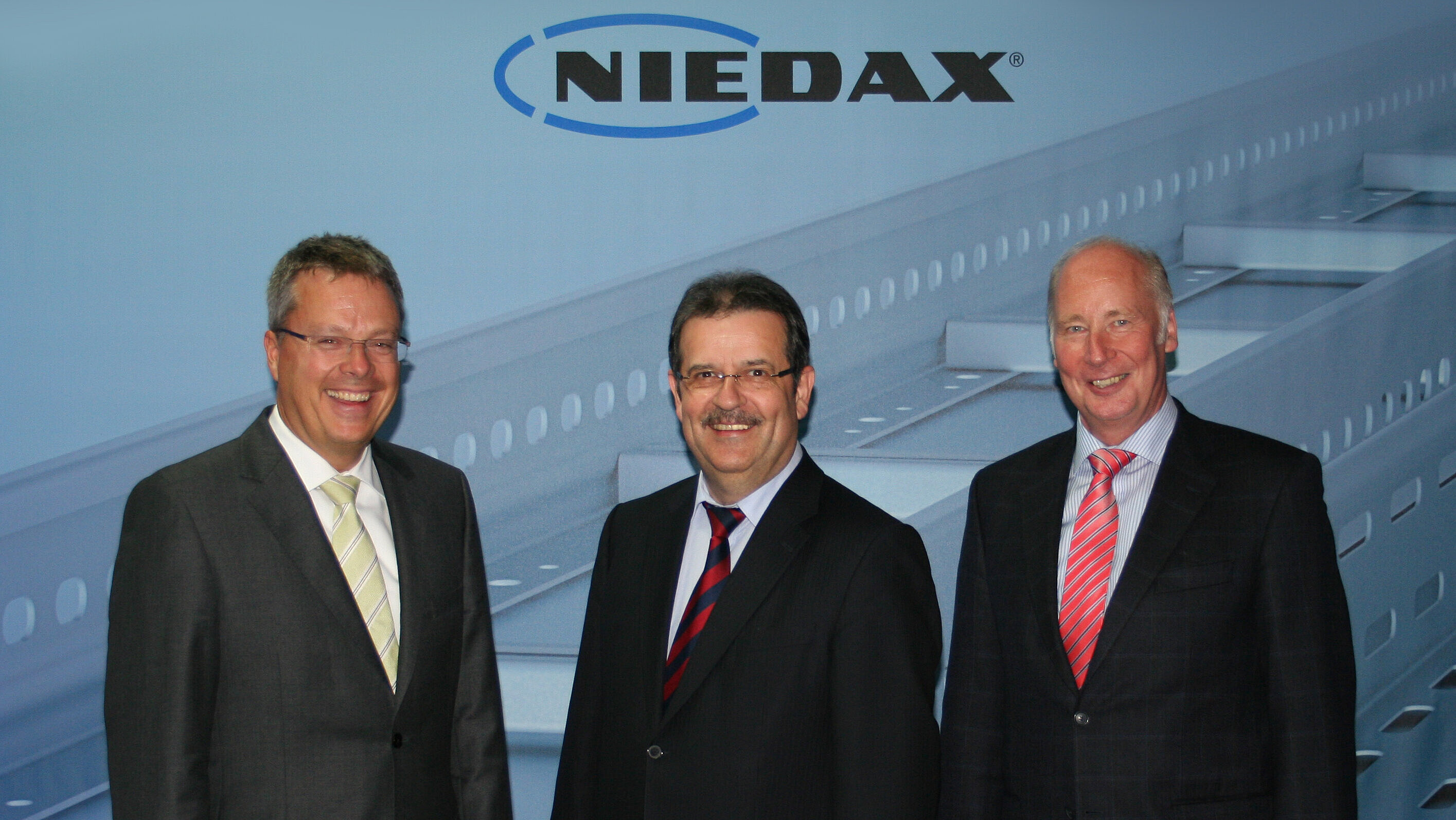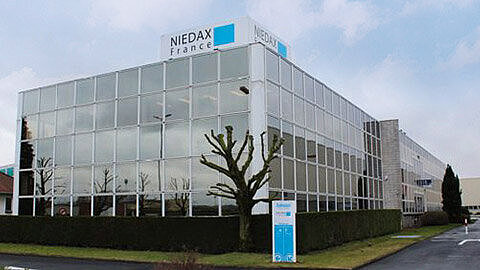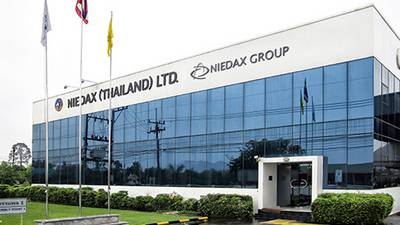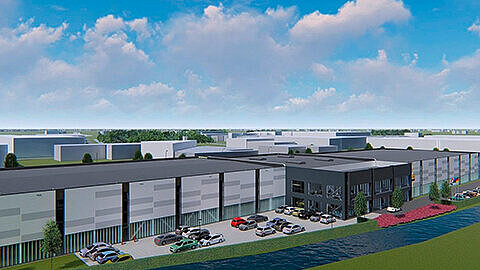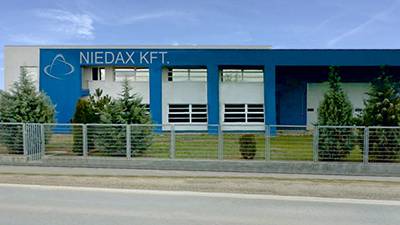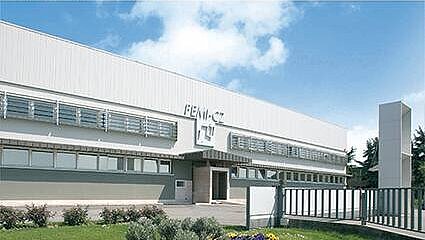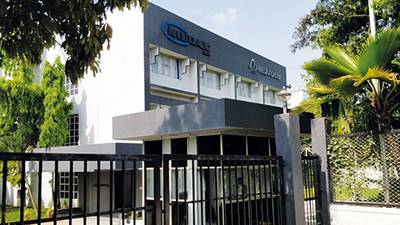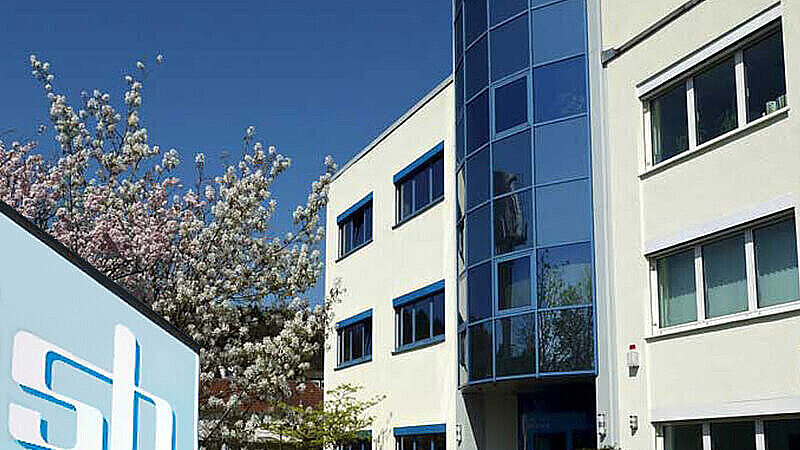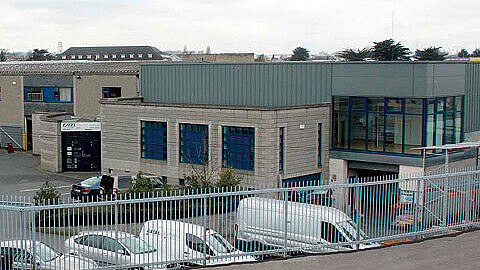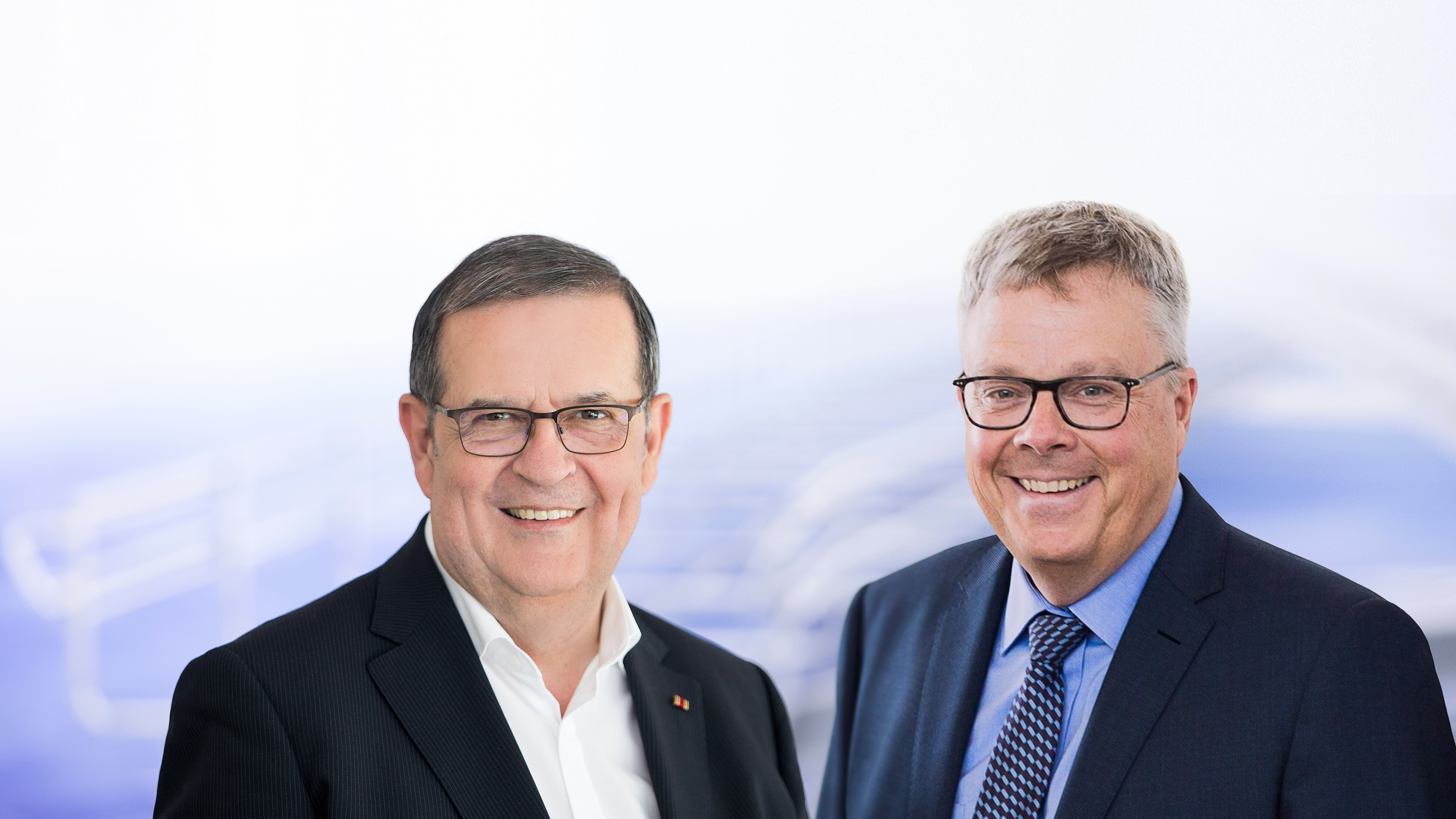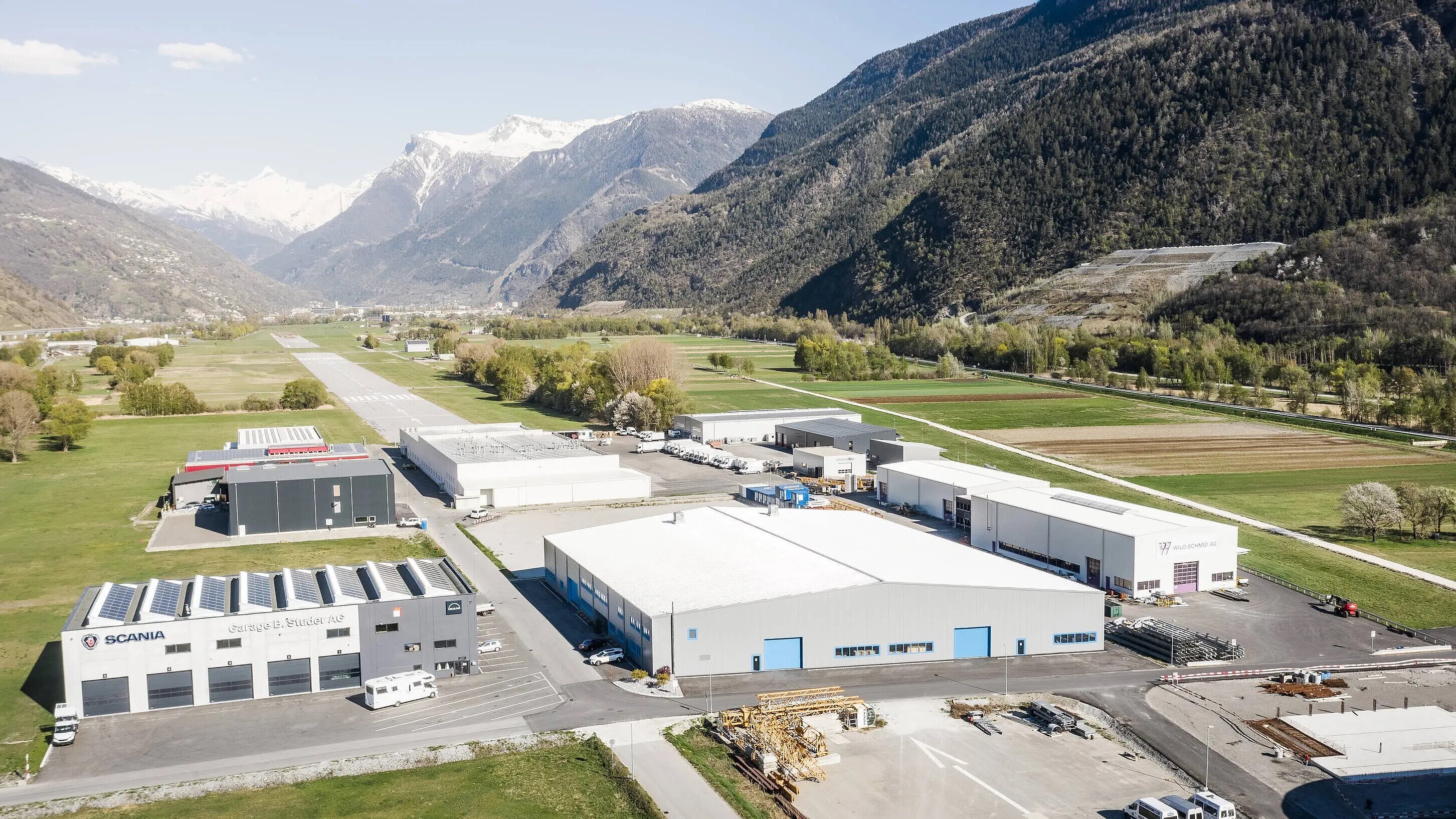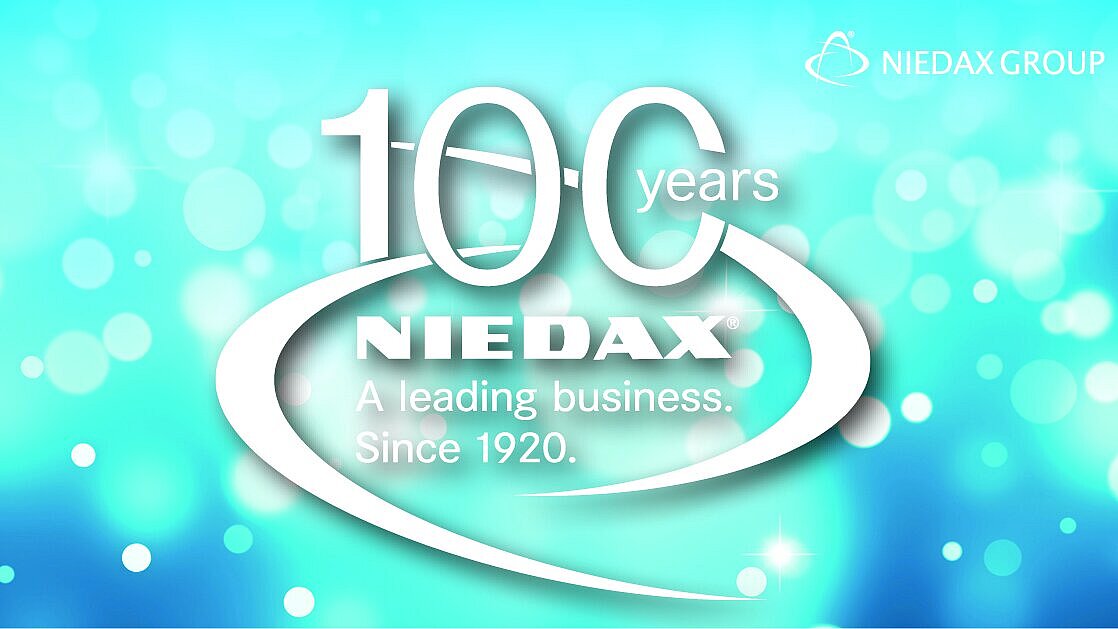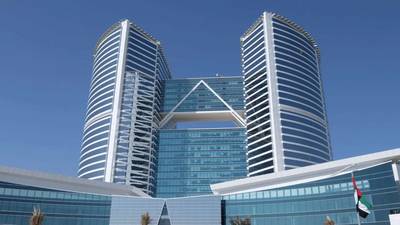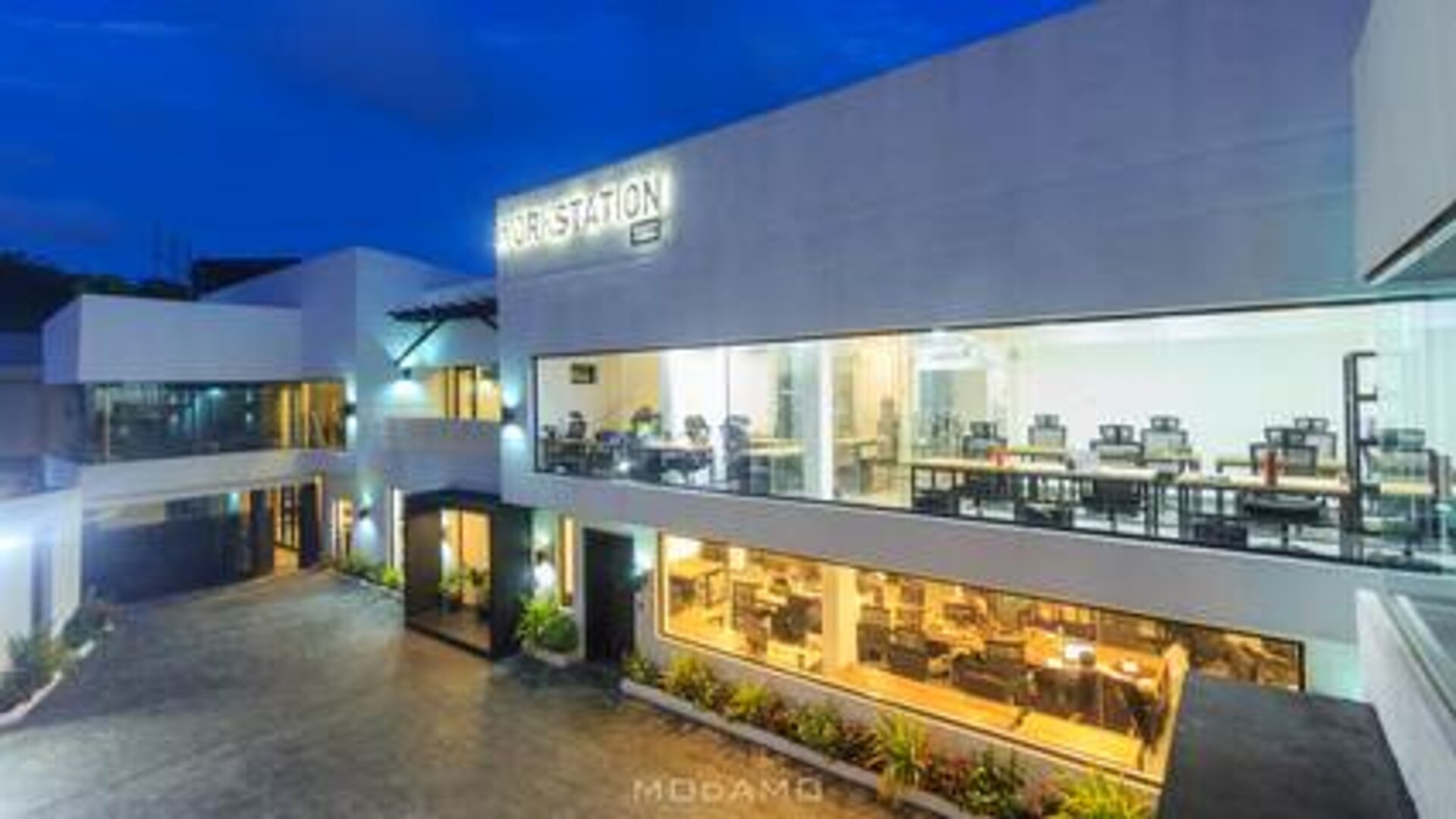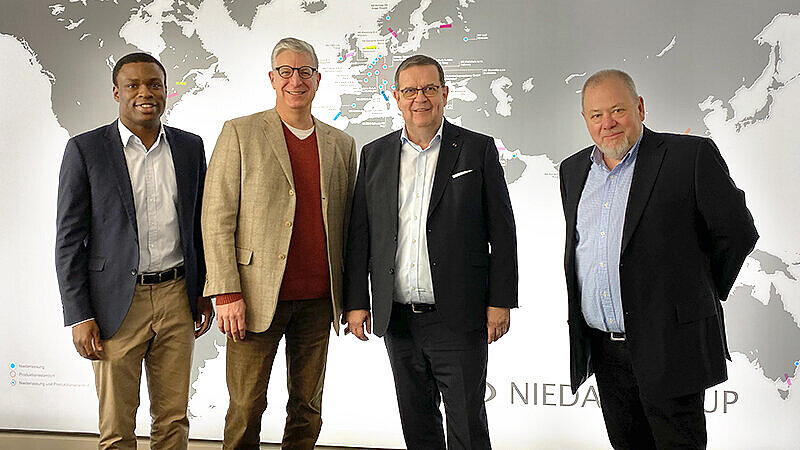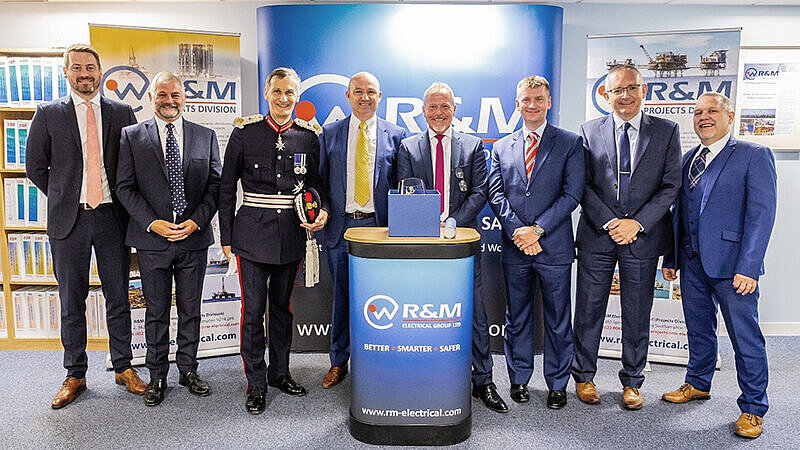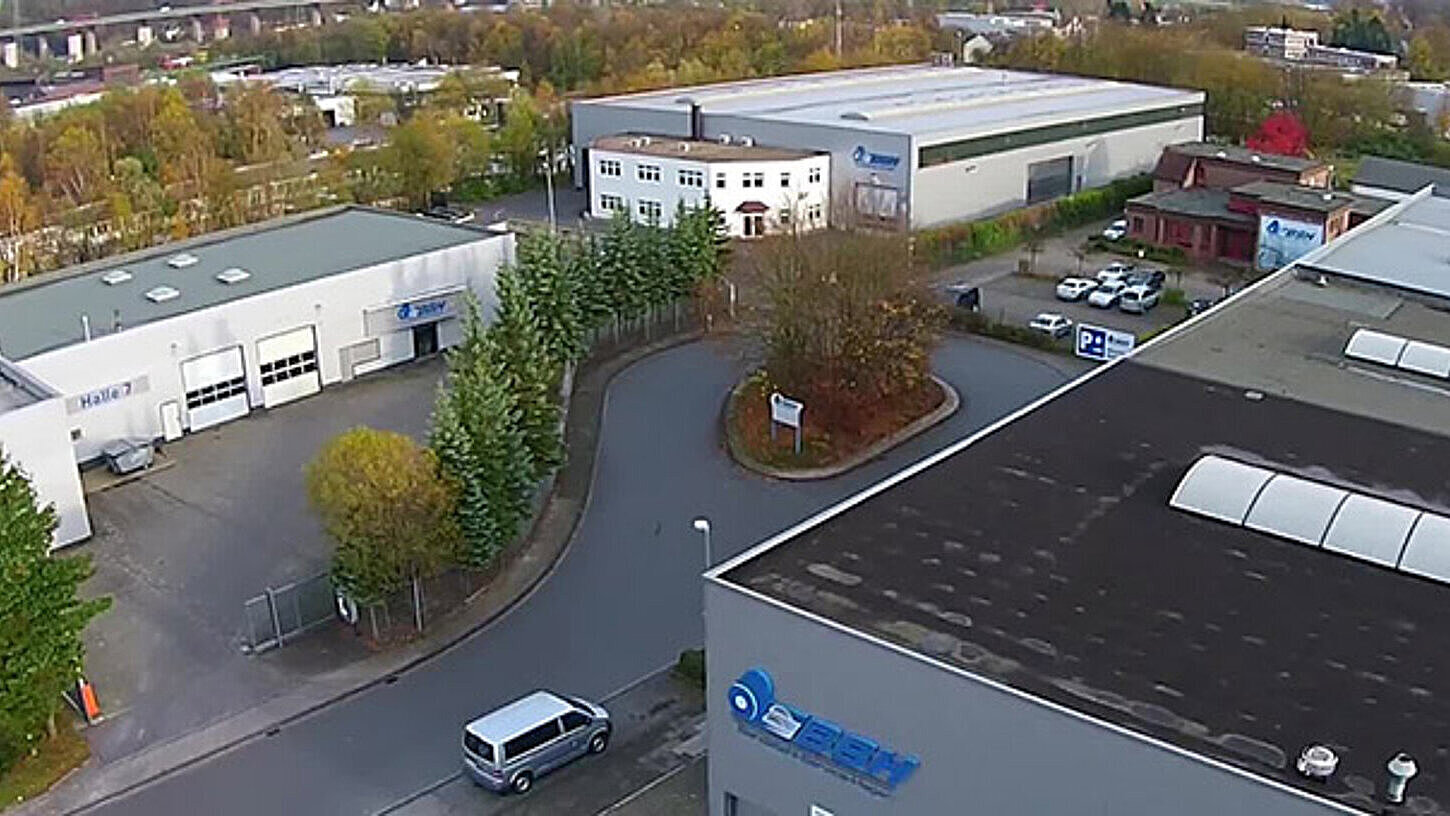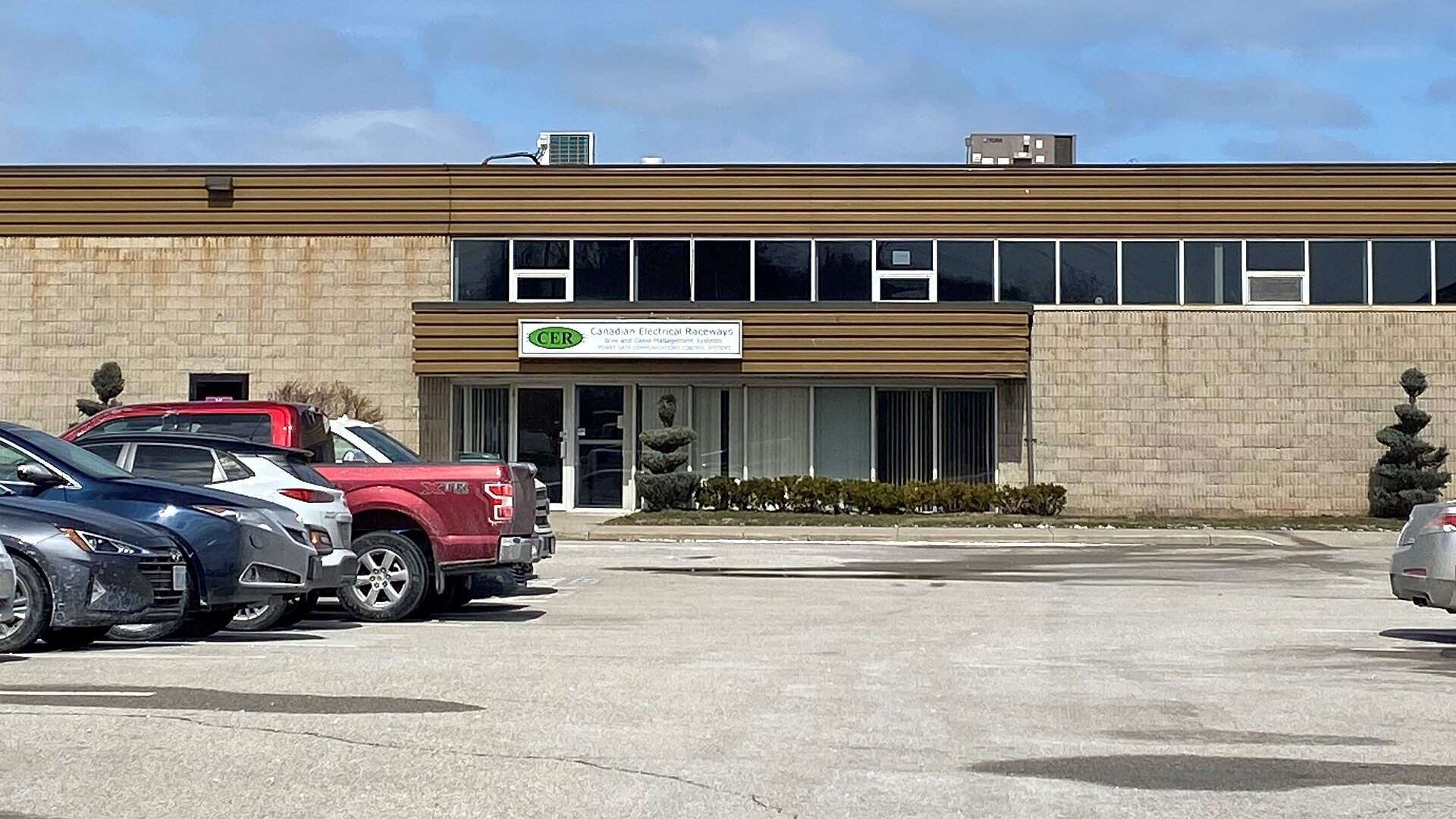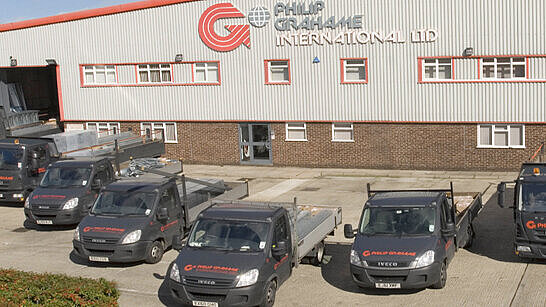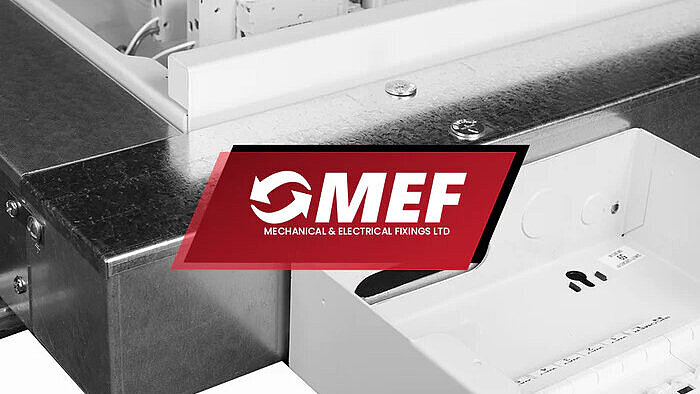The beginnings
Founding a company in Berlin
From a small company to a global player - Niedax's success spans over a century. Engineers Alexander Niedergesäß and Fritz Axthelm write the first chapter in 1920 in Berlin: they found Niedergesäß & Co OHG. The two specialized in installation technology and were already pioneers in the electrical industry at the time. They later move production to Herzberg/Elster. A fusion of their surnames finally forms the registered trademark "Niedax". The patent for the "sleeve expansion plug" follows in 1928 - a milestone.
Our history
From craft to industry: Niedax over the course of time
Post-war period
Destruction and reconstruction
But things are not always uphill for Niedax. The economic crisis and later the Second World War leave their mark. In January 1944, the headquarters in Berlin were completely destroyed and a short time later the production facility was expropriated. New successes are not recorded until the reconstruction: Business booms thanks to the increased demand for electrical installations. In 1948, a branch office is established in Linz am Rhein, and in 1955 the site operates as an independent company under the name "Niedax GmbH". Further patent applications such as the U-bolt clamp with the Hammerfoot® complete the product range.
The 60s
Independence from suppliers
Even after the death of Niedergesäß and Axthelm, Niedax is able to maintain its successful course. By the mid-1960s, Niedax already had 18 branches. In addition, the company puts its own roll forming line into operation. This strategic decision makes the company independent of suppliers and allows maximum flexibility in the product range.
The 70s
Investing in the future
The 1970s are characterized by further forward-looking decisions: In St. Katharinen, a 28,000 square meter site is acquired for production. Later, the company also builds its own hot-dip galvanizing plant there. At the same time, a change in cable laying technology can be observed: The focus was no longer on individual clamps, but on cable trays and ducts. Niedax then developed the first range of steel cable trays.
The 90s
Expansion, acquisition and international success
From the mid-1990s, Niedax goes international: Bruno Reufels and Egon Winggen take over the business. At that time, around 300 employees work in St. Katharinen and offer a product range of over 6000 articles. The two establish branches abroad and ensure the constant growth of the Niedax Group with targeted acquisitions worldwide. Winggen retires in 2005. Alexander Horn, the grandson of founder Fritz Axthelm, takes his place. Together with Rolf Luthardt, there are now three men at the helm of the company.
Niedax today
A family business in transition
The list of successful acquisitions and expansions is long. In 2020, Niedax even entered the African market for the first time - and is now active in over 30 countries in total. The Group also celebrates its 100th anniversary in 2020. For this long-lasting success, Niedax skillfully combines tradition with innovation. The group of companies is still 100% family-owned to this day. Nevertheless, a breath of fresh air is important, which is why the management has recently been joined by representatives of younger generations: Adrian Lowiner, Cornelius Steele, Philipp Stiehl and Marina Reufels ensure a strategic positioning for the future.


